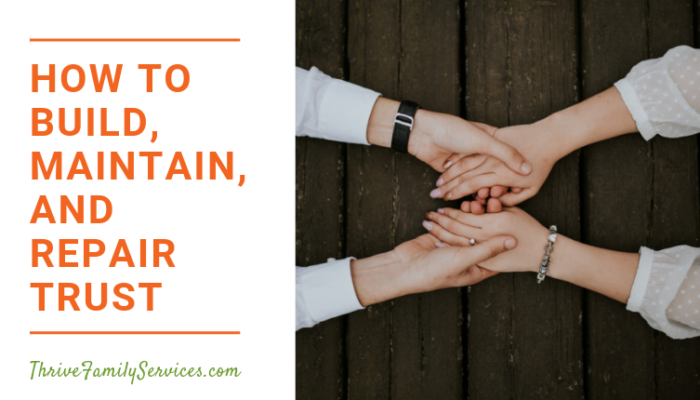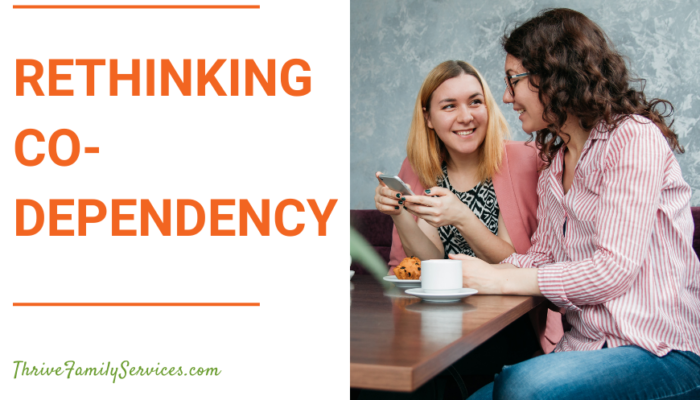What qualities do you look for in a healthy relationship?
Chances are, if you asked this question to people on the street, most people would list “trust” as one of the most important qualities of a sound and secure relationship.
It makes sense that the ability to trust someone is so important in long-lasting relationships. Committed, long-term relationships require it for many reasons.
But what exactly is trust, and what does it look like?
In a simple definition, trust is the ability to have faith in someone. Trust is an emotional state of our brain, rather than just a feeling or expectation.
The ability to feel safe and secure with others is a central part of all relationships. We get closer to people we trust because they offer that sense of confidence and security that they will be there for us. We use a simple acronym in EFT – A.R.E. you there for me? Read more about it here.
Trust is a mental state towards one or more people that allows us to depend on others and predict their behavior. In a way, it creates a peaceful state of living to have the security that comes from knowing we have someone we can rely on.
With that security in our most important relationships, we are healthier, we live longer, we tend to be more successful, and we enjoy life more!
So how is trust built?
Some people seem more naturally inclined to trusting in others. In general, we decide how trustworthy people are (or how trustworthy one person is) by collecting knowledge and evidence of behaviors and consistency.
There are also so many facets of trust.
For example, Sam may feel comfortable having a stranger to watch her stuff while she runs to the bathroom at a coffee shop. However, she wouldn’t trust that same stranger to care for her pets for a weekend with a key to her house.
Similarly, Leo may trust his partner to watch their kids while he is out-of-town for a week. However, he doesn’t trust his partner to remember to get the right kind of juice at the grocery store.
In both examples, trust comes from prior experience.
It’s probable that Leo has seen his partner successfully take care of their kids before, but he hasn’t seen his partner remember to get the right juice before. So, the more evidence we have that people are trustworthy, the more trusting we are.
Your brain enters a peaceful state when you feel trust.
Remember the last time you had your trust broken, whether it was big or small? It probably left you with some feelings of anxiety or worry the next time a similar situation occurred. Obviously, the more times you are let down by a person’s lack of trustworthiness, the less calm and secure we feel with that person. Make sense?
Five Components of Trust
So how is trust maintained? There are five components that people need to consistently experience to have trust in another person:
1. Honesty
This is the obvious one. Knowing that someone is telling the truth is the quickest way to make sure trust levels are maintained. After all, if you aren’t sure that you can believe someone’s words, you will be skeptical about what they have to say.
2. Transparency
Being transparent means that someone is upfront about what they do, even if they know it might upset you. Trust is maintained when you know that you don’t have to do detective work to make sure that you can trust someone. If the person is transparent about when they mess up, it’s easier to let your guard down. Transparency means you won’t have to worry about unpleasant events being sprung at you.
3. Accountability
If someone is accountable – meaning if they follow through on doing what they say they are going to do – your level of trust won’t take a hit. It’s really important to know that if someone says, “I’ll pick the kids up after school on Thursday” or “I’ll do the dishes tonight before we go to bed,” that they will do it! Otherwise, you won’t be able to rely on them.
4. Proof of Alliance
This simply means that you have the certainty to say, “This person has my back.” In other words, you know that they wouldn’t intentionally do anything to hurt you, upset you, or let you down. If this is a truth in your relationship with someone, you’ll have an easier time trusting them and recovering your trust in them.
5. Ethical Actions
This last component of trust is a way of saying that you believe that the things this person does are ethical or good. After all, we feel more comfortable with people who are “good” more than people who are “bad.” Think of the last movie you watched. You probably had a much easier time aligning with the hero of the movie rather than the villain. The same is true in a person’s personal life. We feel reassured with those we believe are good people.
It’s important to note that people can mess up and trust can still be present.
As previously mentioned, people are capable – and likely! – to forgive small betrayals of trust. (i.e. “Oh shoot, I forgot to pick up eggs at the store like you asked.” or “I lied about remembering to drop off that package because I was worried you’d get mad.”) This is especially true if we believe that person has demonstrated proof of alliance and ethical actions.
We can also lose confidence in someone’s likelihood to do one or some things, but still trust them in other areas. If someone has consistently not been honest or transparent about where they are after work, you will likely begin to feel uneasy with their whereabouts.
However, they could still consistently show that you can trust them to take care of your kids, to not forget about your anniversary, and to always give you a gift when they come home from a work trip.
However, there are times when something happens that takes one big blow on your level of trust with someone – or several big blows.
Things like affairs, addiction, secretive behavior, or other unpredictable behavior take a toll on how much you can trust someone. It’s destabilizing to the relationship!
When this happens, it’s known as a betrayal, emotional injury, or attachment injury.
So how is trust rebuilt after a big whammy like an emotional injury?
The simple answer is that trust can be rebuilt. You can rebuild it by re-establishing consistency in honesty, transparency, accountability, proof of alliance, and ethical actions. This is true whether it’s in a smaller area like remembering a grocery list, or a big area like affair recovery.
If someone can re-prove their ability to demonstrate those five components of trust in the area that took a hit, security and confidence in the relationship can be rebuilt.
It benefits people to have others that they can rely on. As humans, we are happier and healthier if we have at least once trusting, secure relationship than people who do not.




